Bass Players to Know: Tommy Cogbill
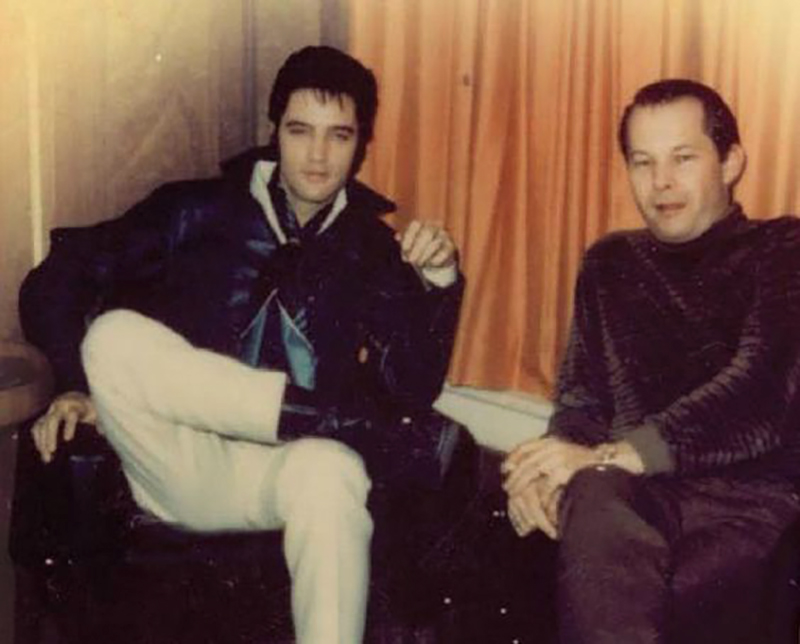
For those of you keeping tabs, it’s safe to say that I’m a soul music junkie. Motown, Philly Soul, R&B from Memphis and Muscle Shoals, you name it — I can’t get enough. I’m a sucker for listening to old records, reading books about the development of record labels such as Stax and Atlantic, and seeking out the musicians who played on the classic hits and groovy B-sides. The “Bass Players To Know” series has featured quite a few of these legendary players — Duck Dunn, Bob Babbitt, David Hood, etc. — though there are still a few unsung heroes from this era of bass playing. Without further ado, our next bass player to know is Tommy Cogbill. A guitarist turned bass player, Cogbill provided the bottom end for many of the soul classics we know and love, from Dusty Springfield’s “Son Of A Preacher Man” to Aretha Franklin’s “Respect.” Jumping from sessions in Memphis, Muscle Shoals, Nashville, and New York, his contributions as bass player and producer have made the world a funkier place.
Who is Tommy Cogbill?
A native of Johnson Grove, Tennessee, Cogbill took to the guitar at a young age and eventually made his way toward the electric bass. In the mid 1960’s, he began picking up sessions in Memphis with a group including Gene Christman on drums, Chips Moman and Reggie Young on guitar, and Bobby Emmons on keys. Often hired by Jerry Wexler for artists on Atlantic records, the group traveled between the hubs of soul music — Muscle Shoals, Memphis, Nashville, and New York. While he frequently recorded at American Sound Studios (owned by Chips Moman), he’s one of the few bass players from that era who regularly bounced around to different cities and studios. By the late 1960’s, he had recorded with artists including Wilson Pickett, Aretha Franklin, Dusty Springfield, and Elvis Presley, among others.
Cogbill soon began stretching his muscles as a producer, working with Neil Diamond (producing the song “Sweet Caroline”), The Box Tops, and Arthur Alexander. In addition to producing, he continued his career as a bass player throughout the 1970s and recorded with country artists and singer songwriters including Kris Kristofferson, J.J. Cale, Bob Seger, Jimmy Buffett, and Townes Van Zandt. Cogbill passed away in 1982 at the age of 50 due to a stroke.
Let’s Talk Style
As we examine the bass lines of soul music makers from the 1960s, it’s easy to see how certain players favor one another. Duck Dunn and David Hood have similar styles, as they are both meat-and-potato players who often find a simple groove or hook and maintain it throughout the song. Their lines are clean, consistent, and definitive. Other players, such as James Jamerson and Cogbill are a bit more outgoing and improvisational. They establish a theme to play to and around, usually sneaking in creative fills, dead notes, and rhythmically busy lines. While Cogbill is dexterous enough to play intricate and imaginative lines, his respect for the song and genre always guide his performance. His brilliance as a bass player is exhibited by conservatism and restraint when supporting a singer songwriter just as much as when he “steps out” on an R&B record.
Cogbill’s overall musicality is impressive. His timing is dead-on, as demonstrated by his keen attention to note duration and the accuracy of his muting and attack. His experience on guitar no doubt translated well to the bass; he plays the neck with freedom, knowing how certain notes would translate in the higher register of the instrument. His understanding of harmony shines as he navigates through chords in clever ways, frequently using the pentatonic scale as a roadmap and rarely shying away from highlighting the dominant 7th or 9th of a chord. Furthermore, the placement of his fills and melodic lines seem completely natural, taking advantage of the space left between vocal lines and playing to the listener’s sense of musical symmetry.
Where Can I Hear Him?
“Son Of A Preacher Man” (Dusty Springfield: Dusty In Memphis)
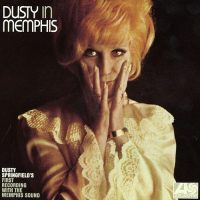 What makes this track so remarkable is the concept of movement; Cogbill’s bass line provides a sense of motion and counter melody while most of the other instruments hold down a static foundation. The drums are solid and steady, the guitar and organ make a harmonic bed, and the horns respond to Springfield’s vocal. Meanwhile, the bass is the instrument that moves. Bouncing between the root, fifth, and octave, he throws in the 6th and dominant 7th to add tension and toggles between the octave and 9th. Cogbill opens up at the end of the song with groovy major-pentatonic lines that move up the neck and jump out of the mix.
What makes this track so remarkable is the concept of movement; Cogbill’s bass line provides a sense of motion and counter melody while most of the other instruments hold down a static foundation. The drums are solid and steady, the guitar and organ make a harmonic bed, and the horns respond to Springfield’s vocal. Meanwhile, the bass is the instrument that moves. Bouncing between the root, fifth, and octave, he throws in the 6th and dominant 7th to add tension and toggles between the octave and 9th. Cogbill opens up at the end of the song with groovy major-pentatonic lines that move up the neck and jump out of the mix.
Listen: iTunes | Amazon MP3
“I Never Loved A Man (The Way I Love You)” (Aretha Franklin: I Never Loved A Man The Way I Love You)
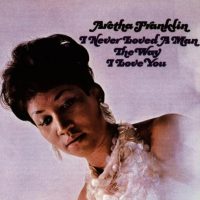 Cogbill’s approach to this song is like “Bass Playing 101.” Come in at the right time with simple, yet definitive notes. Hang back during the verses but provide direction when moving from chord to chord. Use rhythm to bring up the dynamics when going to the bridge. Open up towards the end of the song to match the intensity of the vocalist and other players. Cogbill executes perfect chromatic lines, skillfully directs the band back down to the root at the end of the phrase, and knows exactly when and how to pedal a note.
Cogbill’s approach to this song is like “Bass Playing 101.” Come in at the right time with simple, yet definitive notes. Hang back during the verses but provide direction when moving from chord to chord. Use rhythm to bring up the dynamics when going to the bridge. Open up towards the end of the song to match the intensity of the vocalist and other players. Cogbill executes perfect chromatic lines, skillfully directs the band back down to the root at the end of the phrase, and knows exactly when and how to pedal a note.
Listen: iTunes | Amazon MP3
“Who Do You Love” (Townes Van Zandt: Flyin’ Shoes)
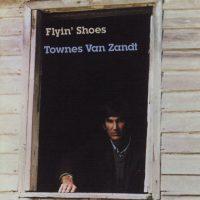 Anyone who can make quarter notes groove as well as they do on this record is worthy of note. Cogbill’s timing is spot on with the kick drum; while the song remains on the same chord, his use of fills and pick up notes create enough motion to separate the verses from the choruses. Playfully using the minor pentatonic scale, he executes slick descending lines on “even” bars (usually the 2nd or 4th bar of a phrase). He takes the energy up a notch towards the end of the song by playing eighth notes, a simple choice that elevates the vamp out and reinforces the groove.
Anyone who can make quarter notes groove as well as they do on this record is worthy of note. Cogbill’s timing is spot on with the kick drum; while the song remains on the same chord, his use of fills and pick up notes create enough motion to separate the verses from the choruses. Playfully using the minor pentatonic scale, he executes slick descending lines on “even” bars (usually the 2nd or 4th bar of a phrase). He takes the energy up a notch towards the end of the song by playing eighth notes, a simple choice that elevates the vamp out and reinforces the groove.
Listen: iTunes | Amazon MP3
How about you? What’s your favorite tune or album with Tommy Cogbill? Please share with us in the comments.
Ryan Madora is a professional bass player, author, and educator living in Nashville, TN. In addition to touring and session work, she teaches private lessons and masterclasses to students of all levels. Visit her website to learn more!

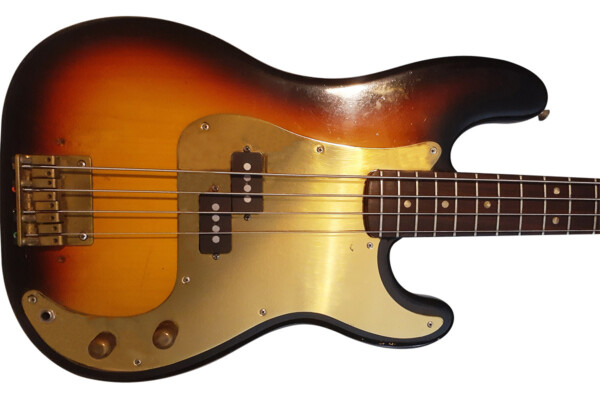
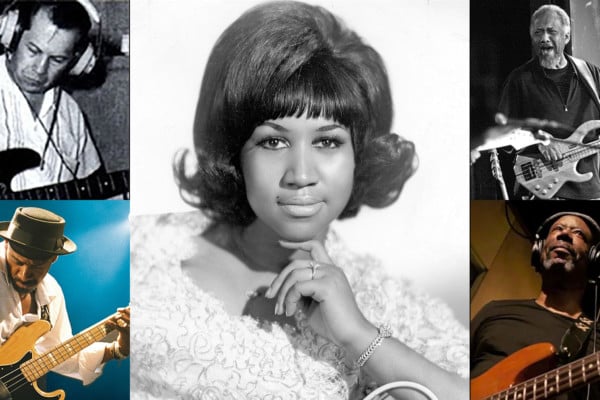
Ryan Madora’s column is always a great read and informational. I love reading about bass players who have influenced me..
Ironically, the bass playing on Son Of A Preacher Man caught my attention, and I was like, wow. I’ve listened to it repeatedly. It’s on my list of bass lines to learn because of its intricacy. I’ll give I Never Loved A Man a listen too. Thanks.
He played only with a pick, right? Did he favor the bridge or neck area for plucking?
Tommy produced several sides for me in Nashville. He also played on all of the cuts and never used a pick on my songs. He secured my ABC Records release as well as my Casablanca single which went to number one on WKDA. He was as talented and nice as a man could be. Working in the studio with him and the other “Memphis Boys” was a highlight in my life.
Jay Ramsey
Any picture I’ve ever seen of him which are not very common he is always playing a P bass and using a B-15 with his fingers like a lot of pros back then.
Tommy Cogbill produced my ABC Records release and my Casablanca single. He played bass on most of my Nashville sessions and I don’t think he ever used a pick. I’m reminded of that because Joe Osborn played on my United Artists tracks and always used a pick. How cool that I’ve been in the studio with two of the all time greats?!!!
That is really cool, two of my heros for sure, I’ve been playing bass for over fifty years and am still active. I remember the 60’s well, my ear was glued to the radio when i was a kid and I can still play 90% of the stuff from that time.
Two of my favorites from those two: Cogbill, Funky Broadway- Wilson Pickett and Joe Osborn- Everything That Touches You- Association. I’ve read through your posts and checked out your wiki page, I’ll be back again to listen to some of your stuff, have a nice night.
Thanks for your comments. Keep on playing.
Another great tune he played bass on was ‘Cry Like a Baby’- The Boxtops. The bass playing in that tune always caught my ear, especially the little solos, I’m 68 and remember him in his heyday although of course I didn’t know his name like all the rest of the 60’s greats, they were anonymous studio bass players to us kids starting out on bass.
My favorite will always be “Respect” by Aretha Franklin.
Love and miss him!
I’ve really missed Tommy all these years and think of you and the whole family often. He was a true friend, a mentor and like a father to me. I really enjoyed being included In the Sunday family dinners in Ashland city. And listening to the great stories about the old days in Memphis. And I’ll never forget our jam sessions with me playing bass to his incredible jazz guitar riffs. He lives on in his music, and every time I hear it, it puts a smile on my face
What a wonderful tribute to my neighbor for many years. It is nice to know that he is still thought of. Another good man that left us way to soon!
Thank you for taking the time to write about our Father. We truly appreciate it.
Is that you, Vanessa?
Your dad was one of the greatest musicians ever! Totally world class in every way.
Fabulous bass player – definitely one of the greats IMO.
Son of a Preacher Man is one of my favorite bass lines by Tommy and have just heard his bass line on good to Me as I Am to you by Aretha which is also great with really tasteful fills.
Great Stuff!
Tommy Cogbill produced The Masqueraders “I Ain’t Got To Love Nobody Else”, and “I’m Just An Average Guy”, “How Big Is Big” and more Tommy Cogbill was a great guy and we loved him.
Thank you for all this information. Could you tell me if mr Cogbill also played on Yesterday, sung by Dusty Springfield?
Check out Tommy’s bass work on Dusty Springfields version of Van Morrison’s’Tupelo Honey’!! Beautiful!!!!
Tommy produced and played on several of my Nashville cuts including my ABC and Casablanca singles. He was a joy to work with (along with the rest of the Memphis Boys) and his playing was fun and innovative. I just ran across an unfinished demo we did at the Sound Shop that had me smiling. I wasn’t impressed by my scratch vocal and Reggie Young never got around to tracking the guitar but Gene Chrisman and Tommy Cogbill on drums and bass smoked it! (Just to show how blessed I’ve been, Joe Osborn was also in the studio with me on some of my originals.)
Jay Ramsey
Hello Sunshine and the riffs is just good!
Tommy Cogbill produced and played bass on my ABC Records release, “Draggin’ Chains.” This is a great track to hear his free flowing, fun side. It’s worth a listen on SoundCloud at Jay Ramsey 2. My favorite.
Not to go off topic but I just listened to ‘Lonely Girl’ and ‘Smooth Talking Woman’ right now on YouTube, I’ll definitely be searching out your stuff, do you remember the titles of the tunes Tommy or Joe played bass on? I grew up listening to both of them and incorporated some of their style in my playing, especially Tommy.
Bob
Hello, Jay! Have been wanting to reach you. How can I contact you?
Hi, Sharon. Looks like we’re now FB friends. I also check Messenger regularly. In addition: 702-493-5855. [email protected]. Nice to meet you.
So many great records Tommy Cogbill played on, Wilson Picket’s Land of a Thousand Dances, Funky Broadway, Mustang Sally, and more. Made some pretty nice records as a guitar player too.